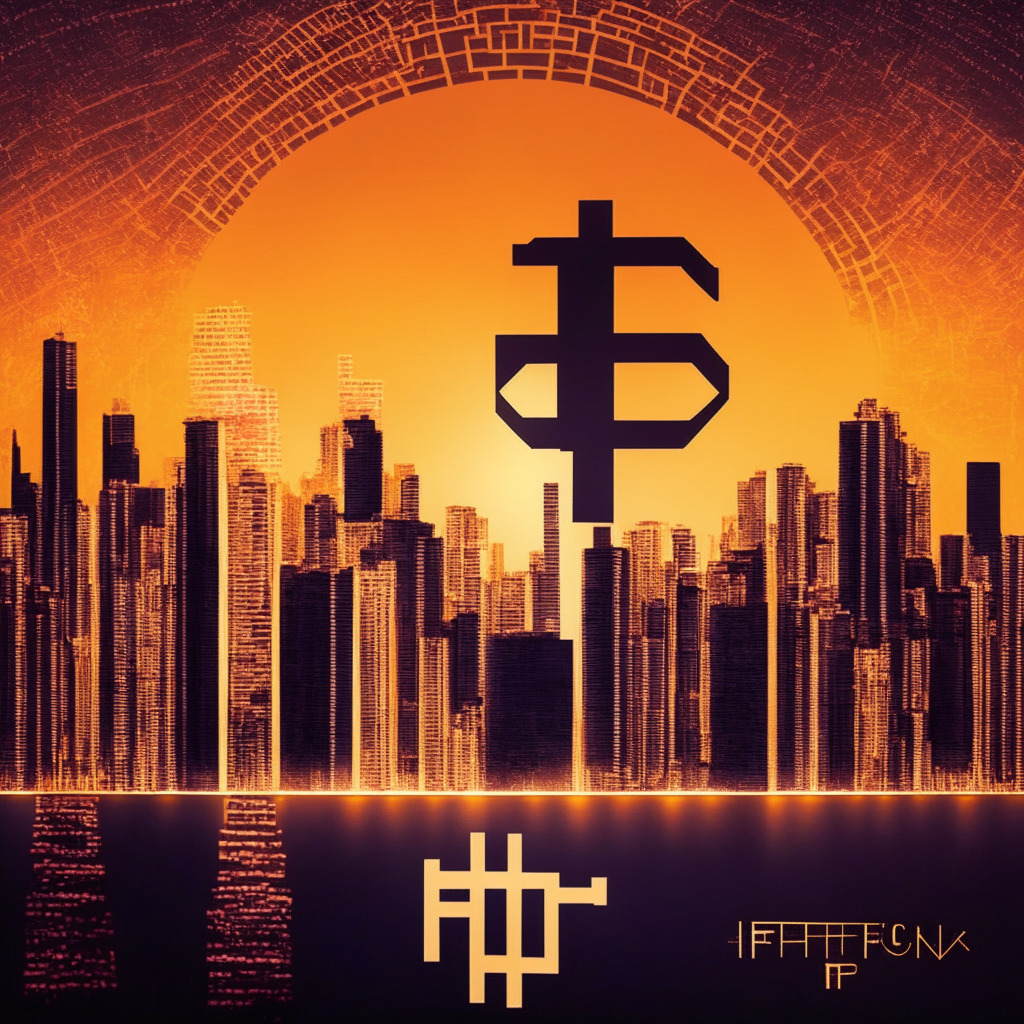A drafted crypto bill proposed by Republican lawmakers aims to establish a clear framework for digital assets and hold regulatory bodies like the SEC and CFTC accountable for their actions, potentially changing the way digital assets are regulated. The bill could encourage fair enforcement practices, ensure consumer safety, and support innovation within the cryptocurrency markets.
Search Results for: Securities and Futures Commission
Digital Assets Debate: Clarifying Security vs Commodity and the Impact on Crypto Regulations
The proposed draft legislation aims to clarify the distinction between a security and a commodity in the digital asset space, establishing when they should be regulated by the SEC or CFTC. This legislation promises to bring clarity and transparency, ensuring future stability and success for the financial sector.
Draft Bill May Reshape Crypto Regulation: Pros, Cons, and Main Conflict
Senior House Republicans introduced a draft bill aiming to establish a concise framework for digital assets in the U.S., allowing regulated crypto firms to argue for commodity classification. The legislation would also introduce digital commodity exchanges with oversight by the Commodity Futures Trading Commission. However, it currently lacks support from Democrats and faces challenges in achieving consensus.
Demand for XRP Relisting on US Exchanges: Legal Precedent and Community Outcry
This article discusses the demand to relist XRP on US-based crypto exchanges and the legal precedent concerning its delisting. Uphold, a US crypto exchange still offering XRP trading, states no legal precedent exists for not listing the token.
Bipartisan Efforts for Clear Digital Asset Regulations: Can SEC and CFTC Find Common Ground?
Two Republican lawmakers from the US House Financial Services Committee and the House Agriculture Committee are working on a discussion draft to regulate digital assets, aiming to establish clarity in determining when a digital asset is considered a security. The draft legislation, “Digital Asset Market Structure Discussion Draft,” proposes a process for treating digital assets and seeks a unified path for SEC and CFTC jurisdictions.
Hong Kong’s First Bitcoin Spot ETF: Contrasting Approaches in Asia and the US
Hong Kong prepares for its first spot Bitcoin ETF, showcasing contrasting attitudes between Asian financial hubs and the US SEC. The Hong Kong SFC-approved VSFG (Yibo Finance) aims to list a spot Bitcoin fund as an ETF while engaging with ETF issuers and regulators.
Coinbase Futures Contracts: Boon for Liquidity or Catalyst for Volatility?
Coinbase is set to introduce Bitcoin and Ethereum futures contracts on June 5 through its CFTC-regulated derivatives exchange targeting institutional investors. This decision aims to provide innovative solutions tailored to institutional needs while addressing regulatory clarity in digital asset trading.
Digital Asset Regulation: Bridging the Divide Between CFTC and SEC in Upcoming Congressional Hearing
US lawmakers will discuss “The Future of Digital Assets: Providing Clarity for Digital Asset Spot Markets” in a congressional hearing on June 6. Collaboration between regulatory committees like the CFTC and SEC is essential to address concerns in the digital assets space, focusing on effective guidelines and fostering innovation while safeguarding consumer interests.
Cryptocurrency Turmoil: Navigating Regulatory Shifts and Unexpected Market Surges
Cryptocurrencies face a bear market due to Federal Reserve’s tightening monetary policies, causing Bitcoin to drop 3% within 24 hours. Meanwhile, the CFTC issues warnings for companies to counter risks in clearing digital asset transactions, and XRP sees an 8% increase in value amid settlement speculations in the SEC/Ripple legal case.
HKMA and CBUAE Collab on Virtual Assets: Boosting Fintech and Challenging US Hegemony
The Hong Kong Monetary Authority (HKMA) and the Central Bank of the United Arab Emirates (CBUAE) collaborate on virtual asset regulations and developments, aiming to strengthen cooperation, promote fintech initiatives, and improve cross-border trade settlement. This partnership coincides with Hong Kong’s Securities and Futures Commission allowing virtual asset service providers to cater to retail investors.
Hong Kong’s Crypto Haven: Opportunities and Challenges in the Blockchain Future
Hong Kong is transforming into a crypto haven, with developments such as launching the CyberDefender Metaverse for public education, lifting its ban on retail crypto trading, and trialing a central bank digital currency. However, the city must ensure safeguards and education to protect its growing crypto community.
CFTC Advisory on Digital Assets: Balancing Innovation and Compliance in Blockchain Future
The CFTC issued a staff advisory to derivatives clearing organizations, emphasizing compliance in areas related to digital assets: system safeguards, conflicts of interest, and physical deliveries. These concerns highlight the balance between fostering innovation in the digital asset space, and protecting investors and businesses. Regulators’ efforts contribute to a more secure and sustainable ecosystem for digital assets.
Increased CFTC Crypto Oversight: Balancing Regulation, Innovation, and Market Security
CFTC’s Division of Clearing and Risk (DCR) is increasing scrutiny on cryptocurrencies, focusing on potential risks and adherence to core principles. The move aims to provide security and clarity for investors while balancing innovation and market stability in the rapidly evolving crypto industry.
Bridging Solana and Ethereum: Key App Innovates and Cross-Network Transfers Simplified
Key App introduces a bridge for Solana and Ethereum users, simplifying token transfers between networks using Wormhole’s technology. The European Central Bank moves closer to a digital euro with finalized prototypes, while Hong Kong’s CoinEx launches BitHK, a regionally-focused crypto trading platform.
Hong Kong Retail Crypto Trading: Balancing Innovation and Regulation Challenges
Hong Kong’s retail trading regime launches on June 1st, with several cryptocurrency companies, like CoinEx and Huobi, announcing their Virtual Asset Service Provider (VASP) license applications. This has generated a competitive atmosphere among crypto firms, as they aim to establish a strong presence in the region. However, concerns remain regarding potential risks and regulatory challenges for investors.
Asian Nations Lead the Charge in Crypto Regulation: Innovations, Trust, and Challenges
Asian nations are increasingly regulating cryptocurrencies, with Japan enforcing stricter Anti-Money Laundering measures, South Korea mandating officials to report crypto holdings, and Hong Kong allowing licensed platforms to serve retail investors. Elsewhere, Beijing fosters Web3 technology innovation, and the International Organization of Securities Commissions pushes for global crypto regulatory frameworks.
Hong Kong SFC’s Crypto Regulations Boost Chinese Cryptos: Analyzing Conflux, VeChain, and Filecoin
The Hong Kong Securities and Futures Commission’s recent regulation of virtual asset trading platforms paves the way for retail investors in cryptocurrency trading, spurring crypto adoption and increased demand for Chinese-related projects. However, investors must remember that crypto markets can be unpredictable, requiring thorough research before investing.
Beijing’s Web3 Push: Balancing Innovation, Regulation, and Crypto Industry Growth
Beijing Municipal Science and Technology Commission’s “Web3 Innovation and Development White Paper” aims to establish Beijing as a global innovation hub with CNY100m annual funding until 2025. Despite China’s cryptocurrency ban, this move hints at opening up to the industry and growing Web3 alongside Hong Kong’s upcoming cryptocurrency regulations.
The Resurgence of Crypto in Hong Kong: Opportunities and Challenges Ahead
Hong Kong witnesses resurgence in crypto interest, attracting major industry players like Huobi, Gate Group, OKX, and BitMEX. Crypto platforms must comply with new regulations starting June 1 as Hong Kong aims to regain its status as Asia’s leading crypto hub. However, challenges remain including hesitant local banks.
Hong Kong Crypto Licensing: Boon for the Market or Just Hype? Debating Pros and Cons
Chinese state TV’s segment on Hong Kong’s mandatory licensing scheme for crypto trading platforms has excited crypto enthusiasts; however, its impact on the market remains uncertain. The attention shows that interest in cryptocurrency and blockchain technology persists even in tightly regulated environments.
DeSantis’ Bold Promise to Protect Bitcoin: The Impact on Crypto Regulations and CBDCs
U.S. presidential candidate Ron DeSantis pledges to protect Bitcoin and the cryptocurrency market, disapproves of central bank digital currencies (CBDCs), and opposes further regulation. His stance sparks debate on the future of digital assets in the United States.
Bitfinex and OrionX Boost Crypto Adoption in Latin America: Opportunities and Risks Examined
Bitfinex partners with Chile’s leading cryptocurrency exchange, OrionX, to encourage widespread adoption in Latin America and support local education programs. With its growing significance, it’s crucial for Latin America to maintain financial stability and protect users amid expanding crypto market involvement.
US Crypto Crackdowns: CFTC vs SEC, Challenges, and the Future of Offshore Operations
The CFTC has warned crypto companies not to perceive it as a more lenient regulator compared to the SEC, as around 20% of its portfolio now consists of cryptocurrency cases. Both regulatory bodies are committed to understanding and regulating the emerging crypto market, debunking any notion of a “light touch” approach.
Binance Axes AUD Trading Pairs amid Regulatory Scrutiny: How Will it Impact Crypto Landscape?
Binance, the world’s largest digital asset exchange, removes several trading pairs, including those involving the Australian Dollar (AUD), amid heightened regulatory scrutiny in Australia. This strategic move highlights the ongoing challenges the cryptocurrency industry faces while balancing innovation and compliance with a complex web of laws.
Hong Kong’s Crypto Rule Change: Impact on Bitcoin and Top Altcoins to Watch
Hong Kong’s financial regulator has announced relaxed rules permitting retail investors to trade select cryptocurrencies starting June 1. However, despite a small boost in Bitcoin’s price, the city’s cautious approach points to a long road ahead for wider crypto adoption amidst China’s resistance.
Hong Kong SFC Crypto Regulation Update: Impact on Top Digital Assets and Market Debates
Hong Kong’s Securities and Futures Commission (SFC) has concluded its consultation on crypto asset rules, potentially boosting the popularity and value of selected digital assets. However, debates remain over selection criteria, stablecoin exclusion, and limitations on EARN and lending services.
Binance’s Latam Gateway License in Brazil: Opportunities and Regulatory Challenges
Latam Gateway, a payment provider for Binance in Brazil, recently received a license to operate as a payment institution and electronic money issuer. As the collaboration between Latam Gateway and Binance grows, Brazil faces challenges in implementing proper oversight and consumer protection measures while fostering innovation in the evolving crypto market.
MIAX Acquires LedgerX: A Strategic Move for Swaps and Futures Market Expansion
MIAX, a subsidiary of Miami International Holdings, completed its acquisition of LedgerX, a regulated exchange and clearinghouse. This move supports MIAX’s growth strategy, allowing for the expansion of its capacity to introduce innovative products into the swaps and futures industry.
Balancing Decentralization and Regulation: The Future of DeFi and DEXs in the US
CFTC Chair Rostin Behnam suggests that the future of DeFi and DEXs may face regulation in the US, focusing on what customers are being offered rather than if DeFi can be regulated. This raises questions about balancing investor protection and decentralization values, as the SEC and CFTC potentially regulate the growing DeFi sector.
Hong Kong’s Crypto Boom: HashKey’s Unicorn Valuation and the City’s Blockchain Future
Hong Kong-based HashKey Group aims to raise $100-$200 million from investors at a valuation exceeding $1 billion. As part of a growing group of digital asset firms, HashKey seeks to expand its customer base amidst Hong Kong’s liberalizing environment and regulatory improvements supporting the crypto industry.
Hong Kong’s Crypto Hub Potential: Opportunities and Challenges for HashKey Group & Investors
Hong Kong’s potential as a crypto hub attracts digital asset firm HashKey Group, aiming for a $1 billion valuation and planning to raise $100-$200 million. Amid Hong Kong’s pursuit of a clear regulatory structure for digital assets, this move could significantly benefit the region’s economy and elevate its status in the crypto industry. However, investors should approach developments cautiously due to potential regulatory complexities and challenges.
Chinese State-owned Firm Enters Hong Kong’s Digital Asset Hub: Pros, Cons, and Main Conflicts
Chinese state-owned real estate company Greenland Holdings plans to join Hong Kong’s digital asset hub by creating a new unit to acquire virtual asset trading licenses. This move supports Hong Kong’s efforts to become a prominent digital assets trading center and diversifies Greenland Holdings’ business in the growing market.































